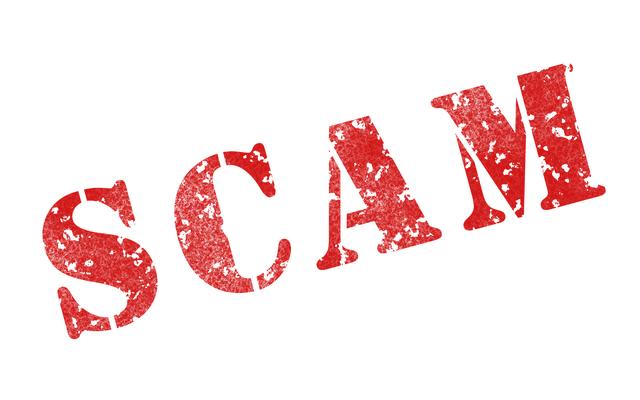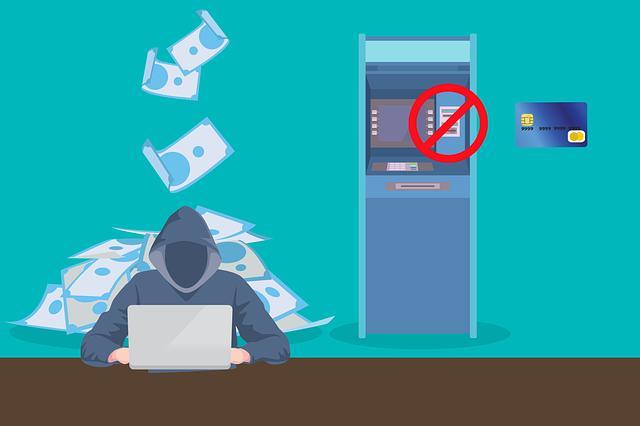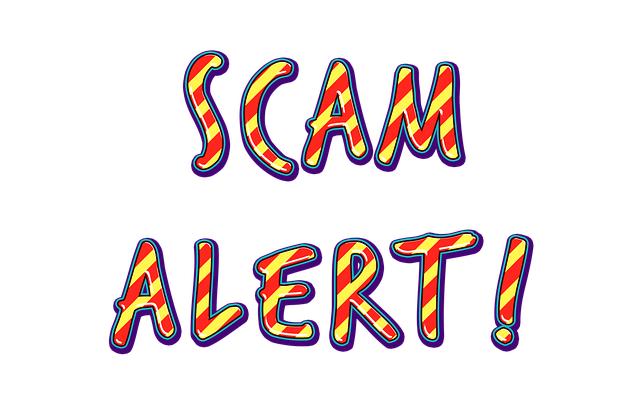- Introduction
- Understanding Gift Card Scams
- Common Red Flags of Gift Card Scams
- How to Report Gift Card Scams
- Preventive Measures to Avoid Scams
- Conclusion
- FAQs
Introduction
In the digital age, gift card scams are becoming increasingly common. Whether it's through phishing emails or social media messages, scammers have developed clever tactics to trick individuals into giving away their hard-earned money. In this article, we will explore the ins and outs of gift card scams, identify key red flags to watch for, discuss how to report these scams if you encounter them, and provide preventive measures you can take to protect yourself in 2024.
Understanding Gift Card Scams

(Image: Pixabay/@bytrangle)
Gift card scams involve fraudsters convincing individuals to buy gift cards for various reasons, often claiming it is necessary to resolve a problem or unlock a prize. These scams can come in many forms, including phone calls, emails, and texts. The common thread among all types is that they typically promise something that sounds too good to be true or threatens immediate consequences for not complying.
Fraudsters may impersonate government officials, tech support from well-known companies, or even friends and family to add credibility to their demands. They instruct victims to purchase gift cards and then provide the card numbers and active codes to the scammer, effectively relinquishing any claim to the funds on those cards.
The evolution of technology has made it easier for scammers to target victims. With access to personal information available via social media and data breaches, these criminals build their schemes on detailed profiles of potential victims, making their cons feel more real and urgent.
It is crucial to remain aware of the various types of scams that exist and to educate oneself about the different tactics used by criminals. Understanding gift card scams can significantly reduce the risk of falling prey to them, enabling individuals to protect their financial well-being.
Common Red Flags of Gift Card Scams

(Image: Pixabay/@TheDigitalArtist)
Spotting the signs of a gift card scam is essential for protection against fraud. Some common red flags include unexpected requests for payment, pressure to act quickly, and limited contact information. If someone demands that you purchase gift cards as a form of payment, it should raise immediate suspicion.
One of the biggest red flags is the urgency typically associated with these requests. Scammers will often insist that you must act fast to avoid dire consequences, which leaves little room for doubt or deliberation. This tactic preys on individuals' emotions, compelling them to make rash decisions without verifying the legitimacy of the request.
Another indicator is the method of communication. Legitimate businesses rarely request payment via gift cards. If a caller, company email, or text message instructs you to purchase gift cards in exchange for services or prizes, it's likely a scam. Genuine organizations employ secure payment methods and will never ask for such sensitive information.
Additionally, be wary of any correspondence that feels off or unusual. Scammers might misuse the names of respected organizations or even create fake websites that appear legitimate. If you notice discrepancies in email addresses, grammar, or overall professionalism, it’s vital to exercise caution and verify the source before taking any action.
How to Report Gift Card Scams

(Image: Pixabay/@teguhjatipras)
If you suspect that you have been targeted by a gift card scam, it is important to take action promptly. Start by reporting the incident to your local authorities or consumer protection agencies. Many countries have dedicated agencies focused on protecting citizens from fraud, such as the Federal Trade Commission (FTC) in the United States.
Moreover, consider informing the store or company that issues the gift card. They may be able to assist you further or provide information regarding the specific scam in question. Providing them with as much detail as possible will aid in their investigation efforts.
In addition to reporting to authorities, consider sharing your experience online or through social media platforms. Consumer awareness can help prevent others from falling victim to similar scams in the future. You may also want to check online scam databases like Scamwatch or Better Business Bureau's scam tracker to see if the same scam has been reported by others.
Lastly, engaging with your community can further help spread awareness about gift card scams. Consider speaking at community events, schools, or local organizations to educate others about recognizing and reporting these fraudulent schemes. The more people who are aware, the less likely these scammers will succeed.
Preventive Measures to Avoid Scams

(Image: Pixabay/@TheDigitalArtist)
When it comes to preventing gift card scams, knowledge is your best defense. Educating yourself and those around you about the common tactics used by scammers can go a long way in safeguarding personal finances. Stay informed about the latest scams circulating in your area and share this information widely to empower others.
In addition to awareness, implementing strong privacy settings on social media can help protect your personal information. Review who can see your posts and what information is available publicly to minimize the chances of scammers accessing personal details that could make their approach more believable.
Consider adopting a policy of skepticism when receiving unsolicited requests, regardless of the medium. If someone urges you to pay via gift card, simply say no. Take time to investigate before acting. Contact the organization or individual directly using verified contact information rather than responding to any provided in the communication.
Finally, keep an ongoing list of trusted contacts and companies, along with their preferred payment methods. Having a reference can serve as a quick reminder to stay on the lookout for suspicious requests. Trust your instincts; if something feels off, always double-check before proceeding.
Conclusion
Gift card scams continue to pose a threat to consumers, but vigilance and awareness can greatly reduce their impact. By understanding common tactics, recognizing red flags, and knowing how to report incidents, individuals can take significant steps toward safeguarding themselves and their financial assets. Prevention measures, including education and caution, are vital in thwarting scammers. Always remember—if a request feels uneasy or too good to be true, it probably is. Stay safe, stay informed, and educate others to foster a protective environment against gift card scammers.
FAQs
What should I do if I have already fallen for a gift card scam?
If you believe you've fell victim to a scam, immediately report it to your local authorities and the company that issued the gift cards. Additionally, monitor your financial accounts closely for any suspicious transactions.
Can I get my money back after sending gift card information to a scammer?
Once you provide gift card numbers and PINs, it is very difficult to recover those funds as most of the time they are emptied almost immediately. Acting quickly by reporting it can sometimes help, but recovery is not guaranteed.
What types of gift cards are commonly involved in scams?
Scammers often prefer widely recognized brands such as Apple iTunes, Google Play, Amazon, and prepaid debit cards due to their ease of conversion into cash or virtual currency.
Are there any indicators that a caller is a scammer?
Indicators include aggressive behavior, threats of legal action, anonymity, and any requests for immediate payment using gift cards. Legitimate calls will not include such tactics.

